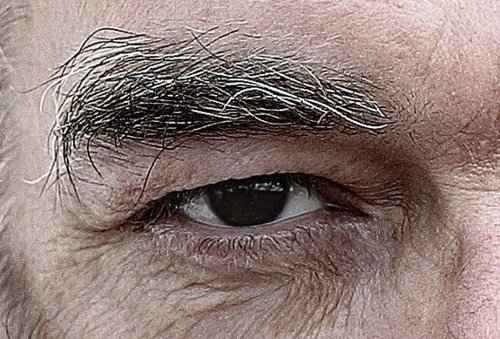Have you ever wondered why your glasses never seem as clear as they were the first day you got them, despite all your efforts to clean them? You might be surprised to learn that cleaning your glasses effectively involves more than just a quick wipe with a shirt sleeve. Here, we’ll explore the right methods, common mistakes, and some interesting facts to help you maintain that perfect clarity.
Why Are Clean Glasses So Important?
It might seem obvious, but the value of clean lenses goes far beyond aesthetics. According to a 2023 survey by the Vision Council, nearly 65% of people who wear glasses admit that their lenses are often dirty, which can lead to reduced visual acuity. Blurred or smeared lenses can cause unnecessary eye strain and even contribute to headaches. Keeping your glasses clean not only improves your sight but also helps in preventing long-term eye fatigue.
What Is the Best Way to Clean Glasses?
The golden rule for cleaning glasses is to use lukewarm water, a mild dish soap, and a lint-free microfiber cloth. Here’s a step-by-step approach that ensures a streak-free finish:
- Rinse Under Lukewarm Water: Start by rinsing your glasses under lukewarm water to remove any dust or debris. Skipping this step can cause scratches when you wipe the lenses.
- Add a Drop of Mild Soap: Use a tiny drop of non-lotion dish soap. Avoid hand soaps that often contain lotions or chemicals that leave residue on your lenses.
- Gently Rub and Rinse: Clean both sides of the lenses, as well as the frame, paying attention to nose pads and temple tips where grime tends to accumulate.
- Dry with a Lint-Free Cloth: Air drying is ideal, but if you are in a hurry, use a clean, lint-free microfiber cloth to pat the lenses dry. Never use paper towels, tissues, or your shirt—these can scratch the lenses or leave fibers behind.
Common Mistakes When Cleaning Glasses
- Avoid Hot Water: Hot water can warp the coatings on lenses, especially if they have anti-reflective (AR) coatings.
- Don’t Use Household Cleaners: Cleaning agents like window cleaners or alcohol-based wipes may seem effective, but they can damage lens coatings over time.
- No to Breath and Wipe: This is probably the most common technique people use, but breathing on your glasses and wiping them on your shirt is highly inefficient and may lead to micro-scratches that reduce lens clarity over time.
Did You Know?
Did you know that the anti-reflective coating on most modern glasses is the result of technology developed for camera lenses in the 1930s? This coating helps minimize glare, improve vision, and also makes the lenses more susceptible to scratches—which is why careful cleaning is crucial.
What About Cleaning Products on the Market?
There are several products marketed specifically for cleaning glasses, but which ones are worth it? A 2022 Consumer Reports review found that store-bought lens sprays often work well, but they’re not always superior to soap and water. However, a high-quality microfiber cloth, which typically costs around $5 to $10, was found to be one of the best investments for keeping your lenses scratch-free and clean.
You can also buy UV sanitizers designed for glasses, which not only clean lenses but also kill bacteria. The average price is around $30 to $50. While UV sanitizers are an excellent option for those who are especially hygiene-conscious, most experts agree that regular cleaning with soap and water suffices for everyday use.
How Often Should You Clean Your Glasses?
Daily cleaning is the key. Glasses are exposed to dust, skin oils, and environmental contaminants throughout the day. If you don’t clean them properly, these elements can build up, causing gradual degradation of both the lenses and the frame. Not to mention, dirty glasses can harbor bacteria—a 2021 study from the American Academy of Optometry found that 23% of spectacle lenses had bacteria capable of causing conjunctivitis, or pink eye.
Best Practices for Maintaining Glasses
- Store Them Properly: Always store your glasses in a protective case when not in use. This prevents dust buildup and accidental scratches.
- Use Both Hands: When taking off your glasses, use both hands to prevent bending or misalignment of the frame.
- Regular Frame Maintenance: It’s a good idea to have your frames professionally adjusted once or twice a year. Optometrists often provide this service for free, and it ensures the glasses sit correctly, which helps keep your vision sharp.
Did You Know?
Did you know that improper handling is the most common reason glasses frames break? A survey conducted in 2022 revealed that 62% of frame issues come from improper removal or accidental dropping.
What to Avoid for Better Lens Health
There are also some cleaning methods and solutions you should avoid entirely. Alcohol-based wipes can degrade the lens coatings, while vinegar is too acidic and can weaken the material of the frame over time. Stick to simple, safe solutions like dish soap and lukewarm water.
Methods of Cleaning Glasses That Damage Lenses
A Word from Our Editorial Team
Taking care of your glasses is a small but significant part of ensuring optimal eye health. By adopting these best practices, you can avoid scratches, maintain lens clarity, and prevent discomfort. Remember, it’s not just about how clean your glasses look—it’s about making sure you’re giving your eyes the best possible visual experience. Take a few extra seconds each day, and your lenses—and your eyes—will thank you.



